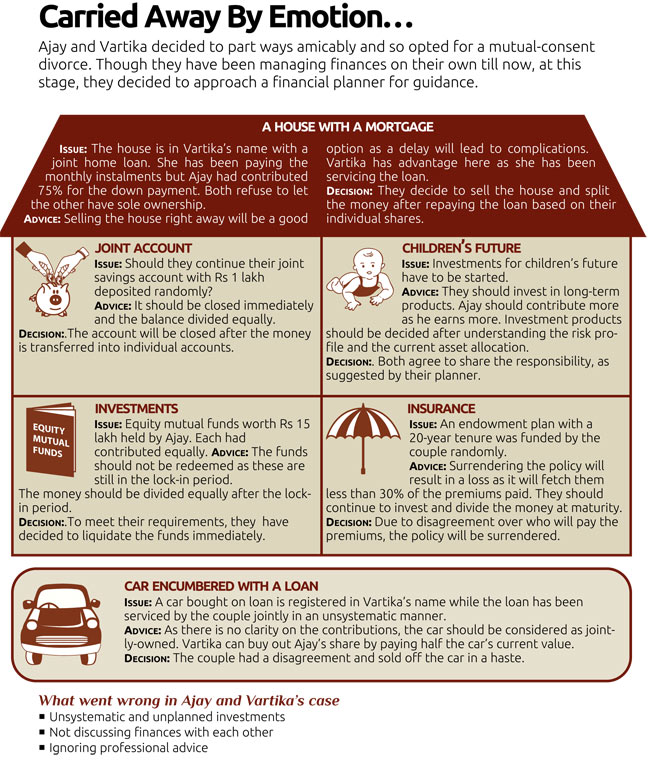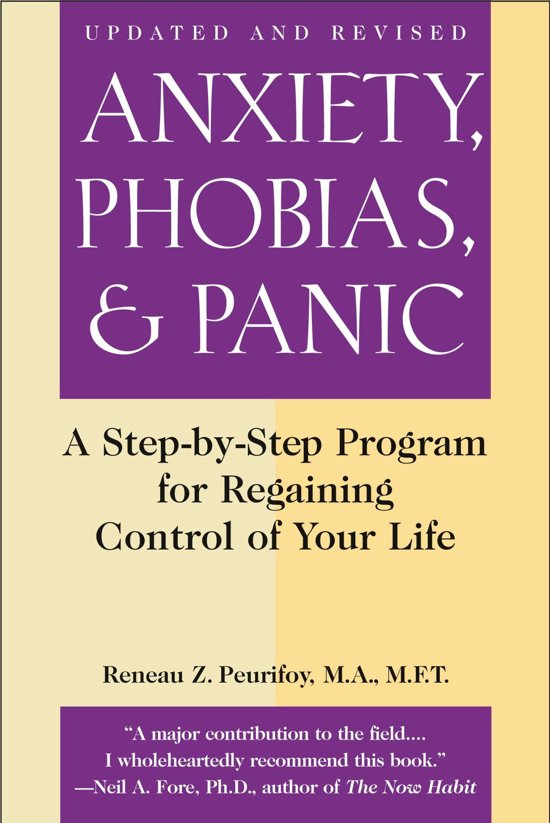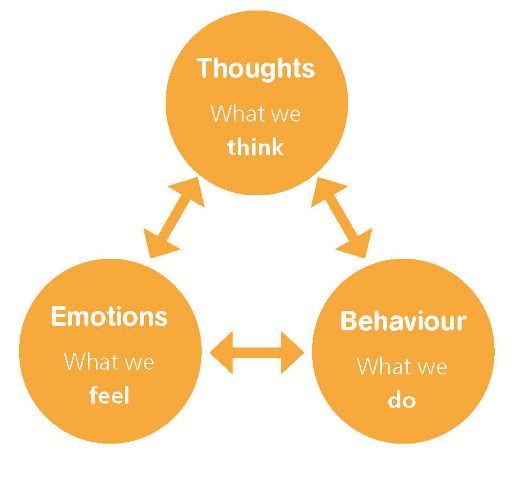What does a recurring nightmare mean
Recurring Nightmares: Causes, Treatments, and More
Nightmares are dreams that are upsetting or disturbing. According to the American Academy of Sleep Medicine, over 50 percent of adults report having occasional nightmares.Nightmares – Risk factors. (n.d.). http://sleepeducation.org/sleep-disorders-by-category/parasomnias/nightmares/risk-factors However, some people have nightmares that occur more frequently. These are called recurring nightmares. Recurring nightmares tend to happen more often in children than adults.Bad dreams, nightmares, and night terrors: Know the difference. (n.d.). https://www.sleep.org/articles/what-is-a-night-terror/
Not all recurring nightmares are the same each night. Many nightmares follow similar themes and tropes but may differ in content. Regardless, these nightmares often cause similar emotions once you wake up, including:
- anger
- sadness
- guilt
- anxiety
These thoughts and feelings can make it hard to get back to sleep again.
Recurring nightmares often have an underlying cause. In this article, we’ll explore the common causes for recurring nightmares, as well as treatment options for some of the underlying conditions.
Nightmares can occur for a number of reasons, but here are five of the most common.
1. Stress, anxiety, or depressionStress is one of the emotions that many people have trouble channeling in a productive manner. Because of this, dreams may be one of the only opportunities for the body to work through those feelings.
One study hypothesized that stress and trauma from childhood can cause recurring nightmares later in life.Nielsen T. (2017). The stress acceleration hypothesis of nightmares. DOI: 10.3389/fneur.2017.00201 Anxiety and depression can cause nightmares, as well.Pagel JF. (2000). Nightmares and disorders of dreaming. https://www.aafp.org/afp/2000/0401/p2037.html These nightmares may include situations related to self-worth, disease relapse, and for some, even panic attacks.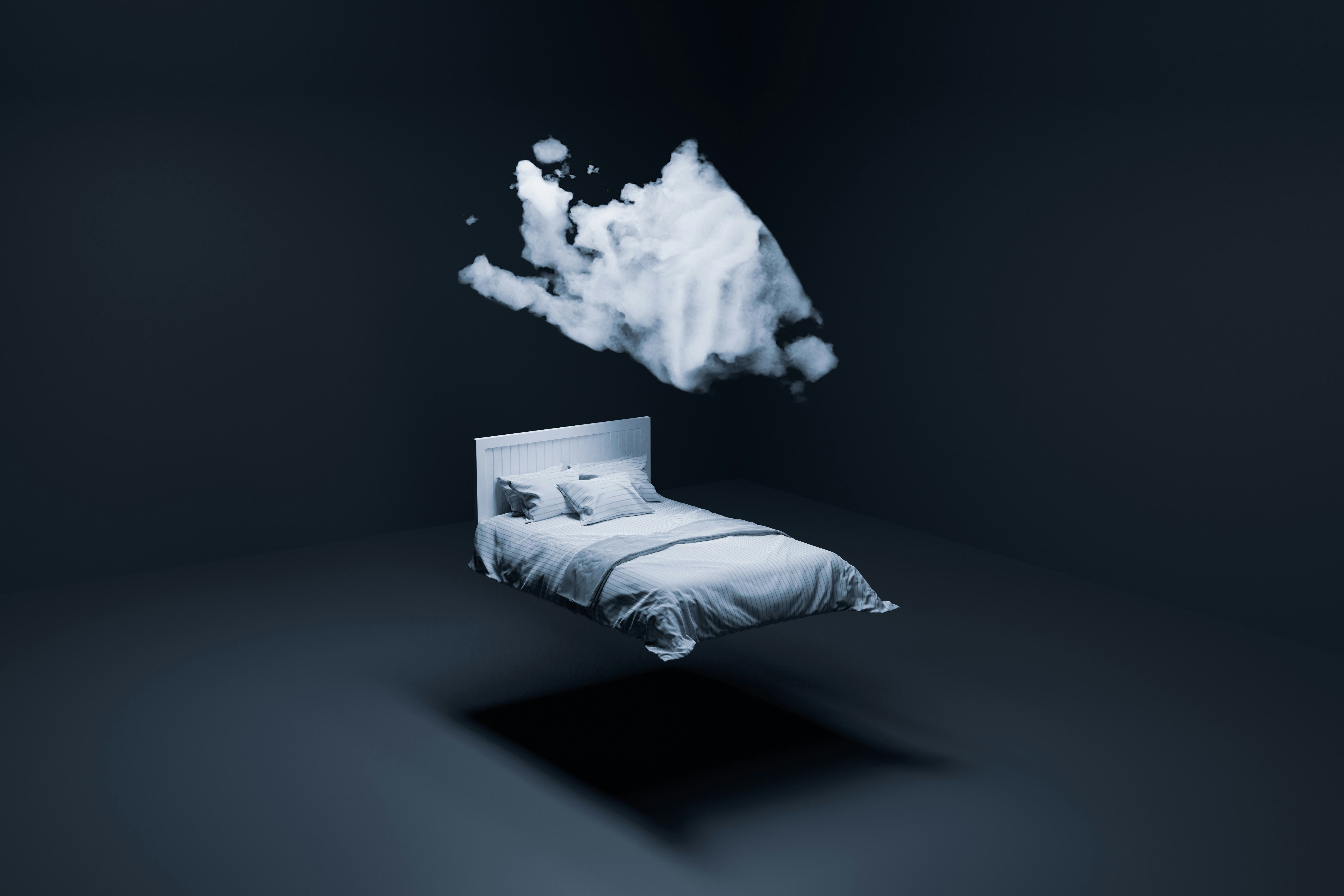
Up to 71 percent of people with post-traumatic stress disorder (PTSD) experience nightmares.Levrier K, et al. (2016). Nightmare frequency, nightmare distress and the efficiency of trauma-focused cognitive behavioral therapy for post-traumatic stress disorder. DOI: 10.5812/atr.33051 PTSD is one of the primary causes of recurring nightmares in adults.
One of the most common symptoms of PTSD is “re-experiencing,” or having flashbacks to traumatic event or events. Sometimes these flashbacks can manifest as nightmares. For people with PTSD, recurring nightmares can have a variety of negative effects, including:
- contributing to or worsening PTSD symptoms
- contributing to or worsening depression
- reducing sleep quality
The content of these nightmares can vary from person to person. For some people, these dreams are replicative nightmares in which the original trauma is replayed over and over again. How trauma can affect your dreams. (n.d.). https://www.sleepfoundation.org/sleep-topics/how-trauma-can-affect-your-dreams For others, the nightmares are symbolic to the emotions and feelings of the original trauma.
How trauma can affect your dreams. (n.d.). https://www.sleepfoundation.org/sleep-topics/how-trauma-can-affect-your-dreams For others, the nightmares are symbolic to the emotions and feelings of the original trauma.
Certain sleep disorders can lead to recurring nightmares. Sleep apnea is a condition characterized by interrupted breathing during sleep. Narcolepsy is a disorder of the nervous system that causes severe daytime drowsiness, hallucinations, and sleep paralysis. Conditions such as these can affect the quality of sleep and may be an underlying cause of recurring nightmares.
4. MedicationsCertain medications, such as antidepressants, blood pressure medications, and other drugs used to treat specific conditions, can cause nightmares. One older study from 1998 found that the most common nightmare-causing drugs included sedative and hypnotic drugs, beta blockers, and amphetamines.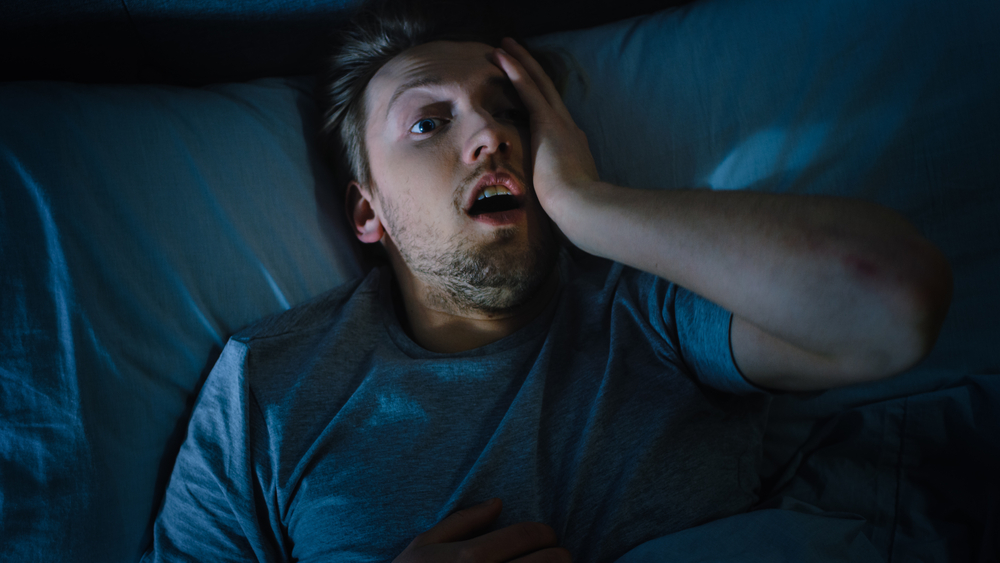 Thompson DF, et al. (1999). Drug-induced nightmares. DOI: 10.1345/aph.18150
Thompson DF, et al. (1999). Drug-induced nightmares. DOI: 10.1345/aph.18150
There are many symptoms of withdrawal that occur from substance abuse, including nightmares. These nightmares may be more intense at the onset of withdrawal but usually taper off within a few weeks of sobriety. Alcohol withdrawal most commonly causes nightmares.
Although nightmares and night terrors may seem similar, they’re quite different experiences. Nightmares are scary, vivid dreams that usually cause the person to awaken immediately. These dreams are often easily remembered.
Night terrors are hard to wake up from. A person may experience extreme agitation, such as flailing about, screaming, or even sleepwalking. Despite these physical reactions, people who experience night terrors usually sleep through them.
Night terrors and nightmares happen during different stages of sleep. When you doze off, you’ll typically move through four stages of sleep. In stages one and two, you’re in a light state of sleep. In stages three and four, you slip into a deeper sleep.
In stages one and two, you’re in a light state of sleep. In stages three and four, you slip into a deeper sleep.
Roughly every 90 minutes, you enter what is often referred to as the fifth stage of sleep, which is rapid eye movement (REM) sleep. Night terrors generally happen when you’re in non-REM sleep, while nightmares occur during REM sleep.
In many cases, treating recurring nightmares involves treating the underlying condition.
Depression and anxiety
Treating conditions such as depression and anxiety, can help to resolve the thoughts and feelings that may be leading to nightmares. Some of the treatment options for these conditions may include:
- psychotherapy, especially cognitive behavioral therapy (CBT)
- medications, such as selective serotonin reuptake inhibitors (SSRIs)
- support groups
- relaxation techniques, such as yoga, meditation, and deep breathing
- regular exercise
Sleep conditions
Treatment for sleep conditions, such as sleep apnea and narcolepsy, may differ. Sleep apnea is generally treated with breathing machines, medications, lifestyle changes, and in some cases, even surgery.
Sleep apnea is generally treated with breathing machines, medications, lifestyle changes, and in some cases, even surgery.
Narcolepsy is most often treated with long-term medications, such as stimulants and certain antidepressants.
PTSD
If nightmares are caused by PTSD, it’s important to seek professional treatment. There are specific treatments that can be used for PTSD nightmares, such as imagery rehearsal therapy and visual-kinesthetic dissociation.
Imagery rehearsal therapy involves recalling the nightmare (or nightmares) when awake and changing the ending so that the dream is no longer threatening. Visual-kinesthetic dissociation therapy is another technique used to help rewrite traumatic memories into a new memory that is less traumatizing.Gray R. (2011). NLP and PTSD: The visual-kinesthetic dissociation protocol. https://www.researchgate.net/publication/239938915_NLP_and_PTSD_The_Visual-Kinesthetic_Dissociation_Protocol
In addition to treating anxiety and depression, cognitive behavior therapy (CBT) may also be used for treating nightmares caused by PTSD.
In one recent study, researchers investigated whether using CBT for PTSD would also help to alleviate trauma-induced recurring nightmares.Levrier K, et al. (2016). Nightmare frequency, nightmare distress and the efficiency of trauma-focused cognitive behavioral therapy for post-traumatic stress disorder. DOI: 10.5812/atr.33051 Participants of the study received CBT for 20 weeks. The researchers found that after 20 weeks of CBT, 77 percent of participants no longer experienced recurring nightmares related to their PTSD.
In the case of nightmares caused by PTSD, medication may be used as part of a treatment protocol for the overall disorder. However, outside of PTSD, it’s rare for medication to be used in the treatment of recurring nightmares.
One of the ways you can reduce recurring nightmares is to create healthy sleep habits by improving your bedtime routine.
- Create a sleep schedule. A sleep schedule can help to make sure that you’re getting enough sleep throughout the night.
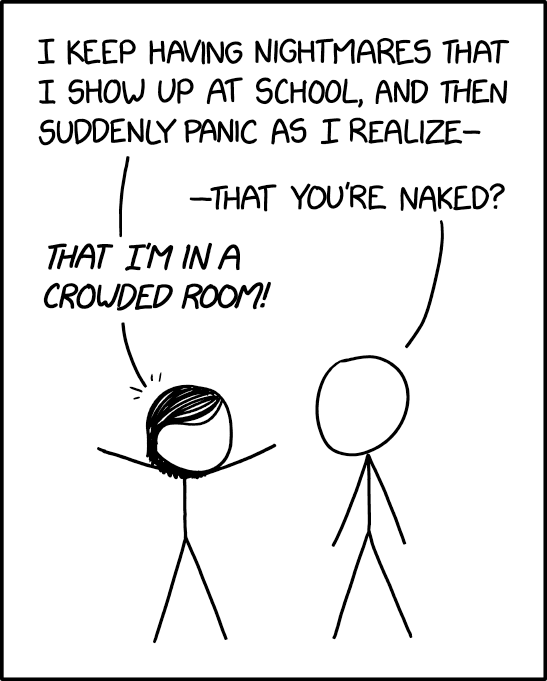 It can also provide some routine stability if you’re experiencing recurring nightmares due to stress or anxiety.
It can also provide some routine stability if you’re experiencing recurring nightmares due to stress or anxiety. - Ditch the electronics. A huge part of getting better sleep is making sure that your body is ready to sleep. The blue light from electronics is known to suppress melatonin, the sleep hormone, making it harder to fall and stay asleep.
- Avoid stimulants. Taking stimulants before bed can make it more difficult to fall asleep. According to the National Sleep Foundation, alcohol, cigarettes, and caffeine can all negatively affect your sleep. Healthy sleep tips. (n.d.). https://www.sleepfoundation.org/sleep-tools-tips/healthy-sleep-tips
- Set the stage. You should make sure that your bed, pillows, and blankets are comfortable. In addition, decorating your bedroom with familiar, comforting items can help create a safe space to fall asleep. Shop our expert-verified products for achieving deeper sleep.

When you experience recurring nightmares, you may find it difficult to fall back asleep again. Here are a few methods you can use to calm yourself down after waking up from a nightmare.
- Practice deep breathing. If you wake up scared or anxious, deep breathing, also called diaphragmatic breathing, can help to slow your heart rate and lower your blood pressure.
- Discuss the dream. Sometimes, discussing the dream with a partner or friend can help to alleviate some of the anxiety it may have caused. It can also be a good way to reflect on the fact that it’s only a dream, and nothing more.
- Rewrite the dream. Part of CBT involves rewriting your thoughts and feelings. If you can rewrite the nightmare into something that’s less scary or disturbing, you may find yourself able to fall back asleep again.
If recurring nightmares are impacting your ability to get good sleep or causing you increased anxiety or depression throughout the day, seek help.
If your nightmares are related to stress, anxiety, or depression, make an appointment with a health professional for treatment and support. If you don’t already have a mental health professional, the Healthline FindCare tool can help you find a physician in your area. The American Psychiatric Association, American Psychological Association, and Anxiety and Depression Association of America all have resources that you can use to find a mental health professional near you.
If your nightmares are related to an underlying sleep condition, your healthcare provider may want to order a sleep study. A sleep study is a test that’s commonly performed at an overnight testing facility. The results of the test can help your doctor determine if you have a sleep disorder that may be leading to your recurring nightmares.
Recurring nightmares usually have an underlying cause. Sometimes, this cause can be related to stress or anxiety, medication use, or even substance abuse.
If you feel that recurring nightmares are affecting your quality of life, reach out to a doctor or mental health professional. Once you treat the cause of the recurring nightmares, you may be able to reduce or eliminate them for good.
Once you treat the cause of the recurring nightmares, you may be able to reduce or eliminate them for good.
Dreams: Here's What Your Recurring Nightmares Actually Mean
Everyone has a bad dream once in a while. But having the same one over and over may signal that something specific is missing in your daily life, new research suggests. Men and women in the study who felt frustrated and incompetent during the day were more likely to have recurrent bad dreams at night than those who felt satisfied and in control.
Other research has suggested that positive or negative emotions carry over into dreams, and that bad dreams may represent the leftover parts of poorly processed experiences, the authors wrote in their study published in the journal Motivation and Emotion. Less is known about the role of social and environmental cues—how people relate to themselves and those around them—in shaping dreams.
Lead author Netta Weinstein, senior lecturer in psychology at the University of Cardiff in the U. K., wanted to find out if a lack of three basic psychological needs—autonomy, competence and relatedness—translated into disturbing dreams. People are more likely to be satisfied with their lives if they feel in control of their choices, good at what they do and closely connected to other people in their social sphere, says Weinstein, and missing out on these needs can lead to anxiety, depression and other mental health issues.
K., wanted to find out if a lack of three basic psychological needs—autonomy, competence and relatedness—translated into disturbing dreams. People are more likely to be satisfied with their lives if they feel in control of their choices, good at what they do and closely connected to other people in their social sphere, says Weinstein, and missing out on these needs can lead to anxiety, depression and other mental health issues.
To find out, they asked 200 people to complete a survey about how frustrated or satisfied they were with various aspects of their life, along with their most common recurring dream. They also asked 110 people to keep a dream diary and respond to psychology questionnaires over three days.
Both experiments showed a link between unmet psychological needs, frustration with life experiences and negative dream themes, including dreams that involved frightened, sad or angry emotions. Those emotions “may directly result from distressing dream events,” the authors wrote in their paper, which “might represent the psyche’s attempt to process and make sense of particularly challenging waking experiences. ”
”
People who were frustrated with their daily lives were also more likely to report having recurring dreams about falling, failing or being attacked. But the study authors say it’s too soon to draw conclusions about whether specific dream content relates to certain psychological issues.
“I wish we could say there are certain assumptions you could make about someone who dreams about fire or who dreams about falling, but the evidence for that right now is still quite modest,” says Weinstein. “Hopefully this is a first step in that direction, but we’ll need a much bigger sample before we can get there.”
The study could not show that daily frustrations actually caused negative dream themes, only that there was an association. Weinstein says it’s possible that the relationship could work in the opposite direction—that bad dreams could influence waking experiences—or that some people may simply be more likely to feel dissatisfied with their life and to experience recurrent bad dreams.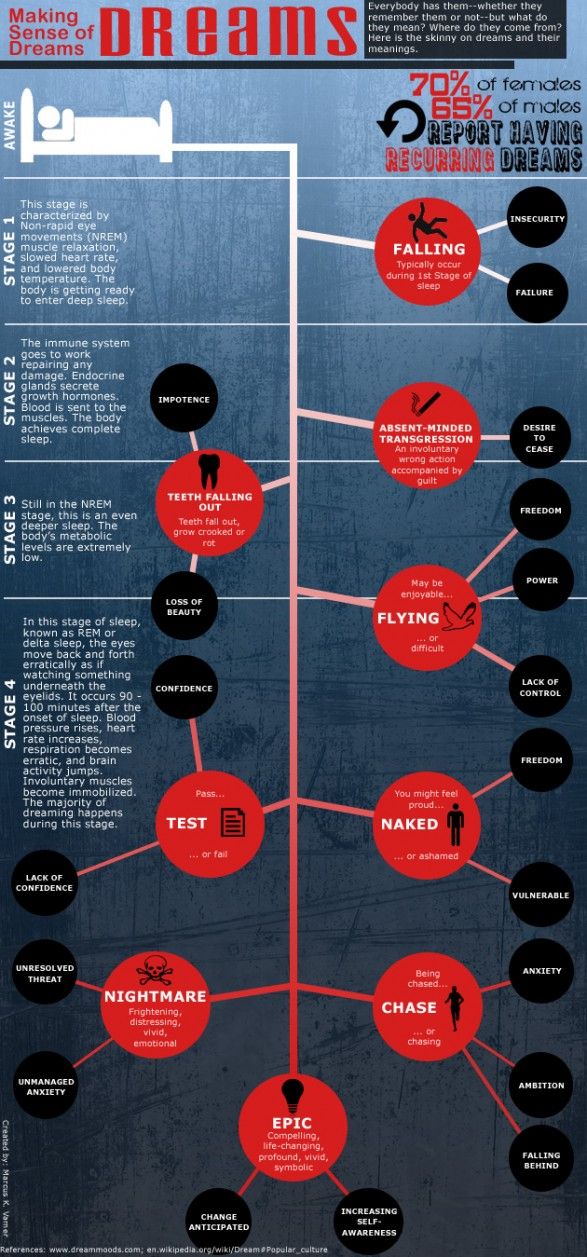
But people in the three-day study did report worse dreams after days when they reported more frustration, compared to days they felt more satisfaction. This suggests that day-to-day unmet needs really are influencing dreams, the authors say.
Weinstein says her research makes a broader point about mental health and should send a message to people who find themselves consistently feeling frustrated, lonely, incompetent or helpless. “This is the latest in a string of research showing that these experiences are very harmful,” she says, “not just for our ability to function during the day, but now, possibly, for our ability to sleep well at night, too.”
“At this point, we can definitively say that feeling incompetent is just not good for you,” she says. “My advice is to find any opportunity to feel more valued, more confident about yourself and more connected with people and things you care about. It’s hard to overestimate how helpful that will be for your well-being.”
Contact us at letters@time. com.
com.
Why do I have recurring nightmares?
Breaking news
The best works of the Film Science!
The best works of the Film Science!
Image supplied by Capital Pictur/EAST NEWS
What does science say about recurring dreams?
Having the same dream over and over again is a well-known phenomenon: almost two-thirds of the population report recurring dreams. Being chased, finding yourself naked in a public place or in the middle of a natural disaster, losing your teeth, or forgetting about classes for an entire semester are typical recurring dream scenarios. But where did this phenomenon come from? Explain neuroscientist Claudia Picard-Deland and psychiatrist Tore Nielsen from the University of Montreal on the pages of The Conversation.
The science of dreams shows that recurring dreams can reflect unresolved conflicts in a person's life.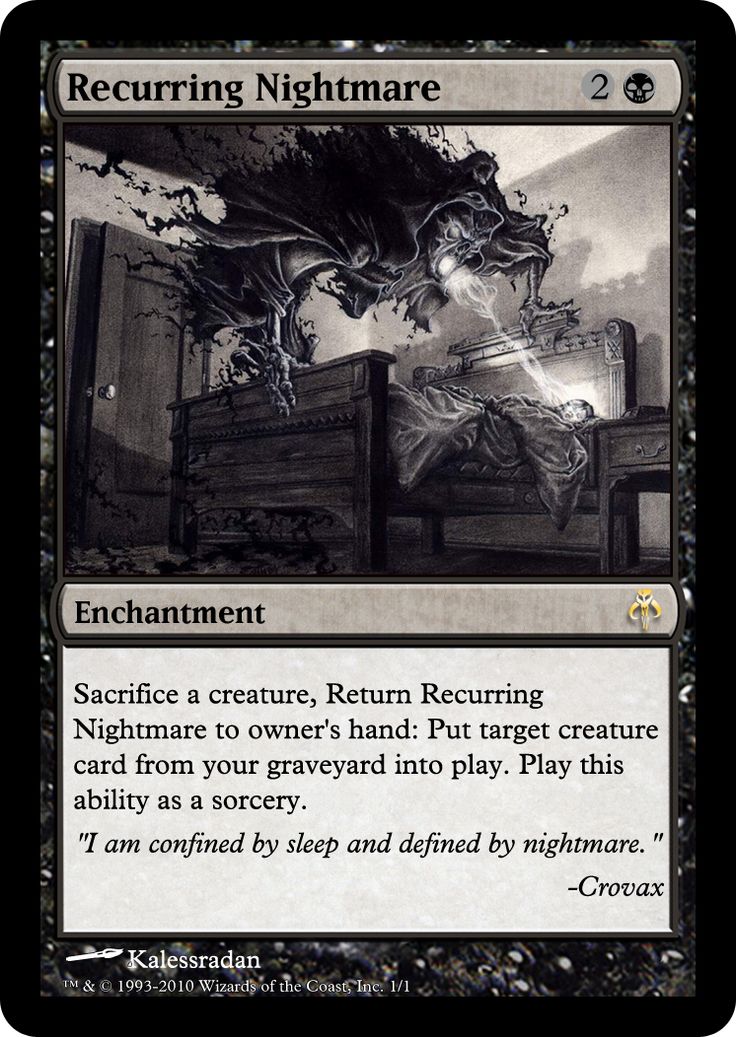 They often occur during times of stress, but can also haunt you for an extended period of time, sometimes several years or even your entire life. Not only do these dreams have the same themes, they can also repeat the same story night after night.
They often occur during times of stress, but can also haunt you for an extended period of time, sometimes several years or even your entire life. Not only do these dreams have the same themes, they can also repeat the same story night after night.
Although the exact content of recurring dreams is unique to each person, there are common themes among people of different cultures. Some of the most common scenarios include stalking, falling, not preparing for an exam, being late, or repeatedly trying to do something.
Most recurring dreams have negative content, including emotions such as fear, sadness, anger and guilt. More than half of recurring dreams are associated with a situation where the sleeper is in danger. But some regular daydreams can be positive and even euphoric: for example, dreams in which we fly or open new rooms in our house, as well as erotic dreams.
In some cases, recurring dreams that begin in childhood may persist into adulthood. These dreams may disappear for several years, reappear in the presence of a new source of stress, and then disappear again when the situation is over.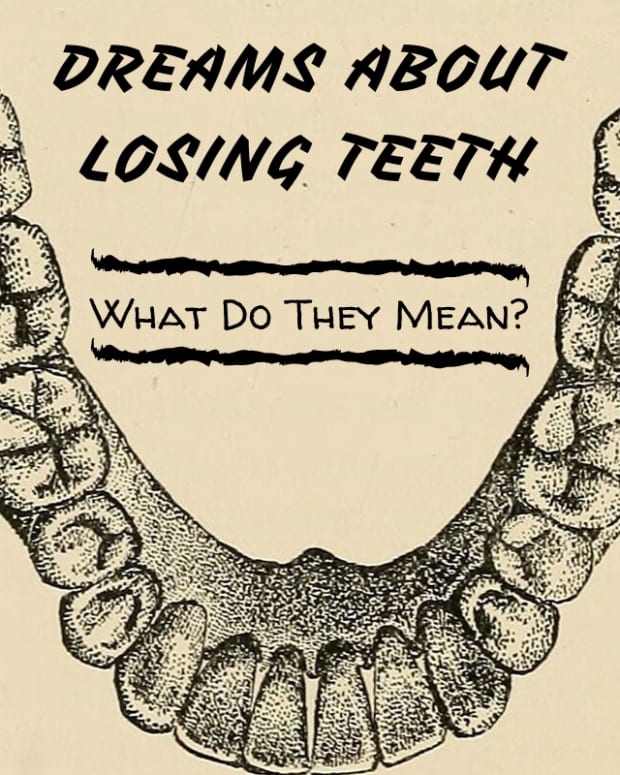
Unresolved conflicts
Why does our brain reproduce the same dreams over and over again? Research shows that dreams in general help us regulate our emotions and adapt to stressful events. Incorporating emotional material into dreams may allow a person to experience a painful or difficult event.
In the case of recurring dreams, the same content may represent a failed attempt to make sense of these difficult experiences. In many theories, the prevailing view is that recurring dreams are associated with unresolved difficulties or conflicts in a person's life.
The presence of recurring dreams is also associated with lower levels of psychological well-being and the presence of symptoms of anxiety and depression. These dreams tend to recur during stressful situations and stop when the person resolves a personal conflict, indicating an improvement in well-being.
Recurring dreams are often figurative of people's emotional experiences. For example, a dream about a tsunami occurs after an injury or abuse. This is a typical example of a metaphor that embodies the emotions of helplessness, panic, or fear experienced while awake. And when in a dream you find yourself naked or inappropriately dressed, you cannot find a toilet - these are scenarios that personify embarrassment and shame.
This is a typical example of a metaphor that embodies the emotions of helplessness, panic, or fear experienced while awake. And when in a dream you find yourself naked or inappropriately dressed, you cannot find a toilet - these are scenarios that personify embarrassment and shame.
These themes can be seen as ready-made scripts that provide us with a space where we can process our conflicting emotions. The same script can be reused in different situations where we experience similar emotions. That's why some people who are faced with a stressful situation or a new challenge may dream that they were unprepared for a math exam - even years after they graduated from high school. Although the circumstances are different, a similar feeling of stress or a desire to succeed can trigger the same dream scenario again.
Continuity of repetition
American researcher and psychologist William Domhoff proposes the concept of continuous repetition of dreams. In an extreme case, traumatic nightmares directly reproduce the trauma experienced - this is one of the main symptoms of post-traumatic stress disorder.
In this case, recurring dreams arise in which the same dream content is reproduced partially or completely. Unlike traumatic dreams, recurring dreams rarely reproduce an event or conflict directly, but reflect it metaphorically through the underlying emotion.
Next, according to this theory of the continuity of dreams, there are recurring themes in dreams. These dreams tend to reenact a similar situation—for example, being late, being chased, or being lost—but the exact content of the dream varies. For example, a person dreams of being late for a train, and not for an exam.
Certain dream elements can be found recurring in one person's dreams, such as characters, actions, or objects. All these dreams on different levels reflect an attempt to resolve certain emotional problems.
With the continuous repetition of dreams, experiences gradually change their intensity from a high level to a lower one, which is often a sign that the psychological state of a person is improving. For example, trauma survivors often experience progressive and positive changes in the content of their traumatic nightmares as they overcome their difficulties.
For example, trauma survivors often experience progressive and positive changes in the content of their traumatic nightmares as they overcome their difficulties.
Physiological phenomena
Why do we usually have the same themes in dreams? One possible explanation is that some of these scenarios provided an evolutionary advantage and therefore stuck with the human race. For example, stalking nightmares that mimic a life threat provide an additional opportunity for a person to practice perceiving predators and fleeing from them in their sleep.
Some general themes can also be partly explained by the physiological phenomena that occur during sleep. A 2018 study by a team of scientists in Israel found that dreams of losing teeth were not particularly associated with anxiety symptoms, but rather were associated with clenching of teeth during sleep or dental discomfort upon awakening.
When we sleep, our brain is not completely cut off from the outside world.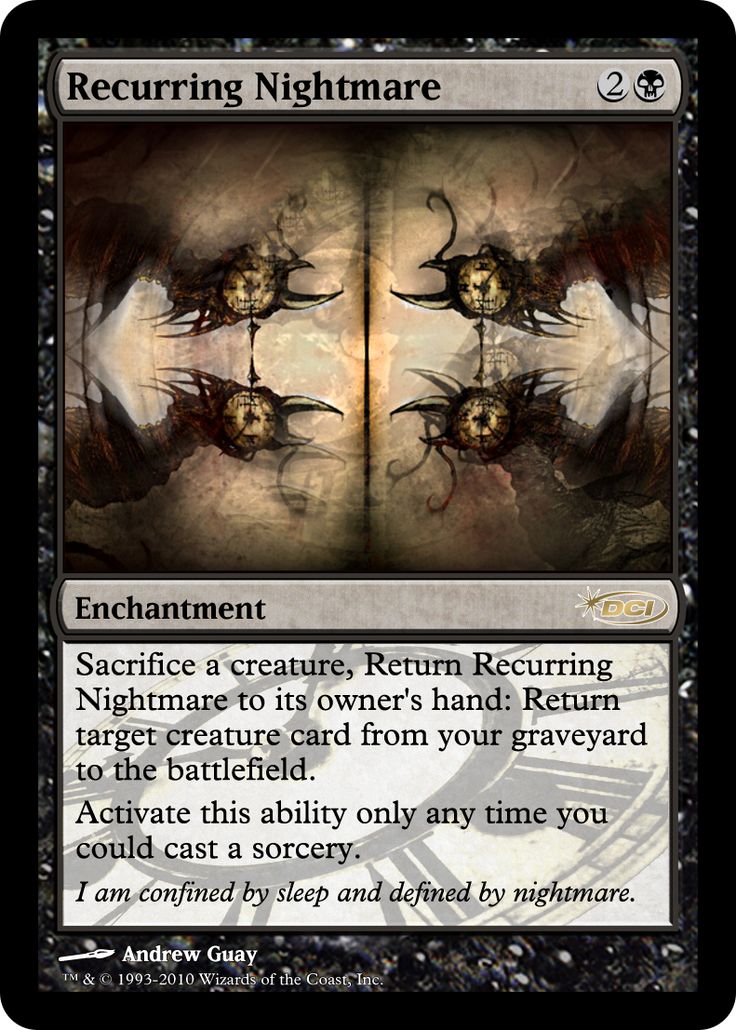 He continues to perceive external stimuli, such as sounds or smells, or internal body signals. This means that other themes, such as not being able to find a toilet or being naked in a public place, may actually be caused by having to empty your bladder at night or wearing loose pajamas in bed.
He continues to perceive external stimuli, such as sounds or smells, or internal body signals. This means that other themes, such as not being able to find a toilet or being naked in a public place, may actually be caused by having to empty your bladder at night or wearing loose pajamas in bed.
Some physical phenomena that are characteristic of REM sleep (in this phase of sleep we most often dream) may also be relevant. During REM sleep, our muscles are paralyzed, which can lead to dreams of stiff legs or being paralyzed in bed.
Similarly, some authors have suggested that dreams of falling or flying are caused by our vestibular system, which promotes balance and can spontaneously reactivate during REM sleep. Of course, these sensations are not enough to explain the recurrence of dreams in humans and their sudden occurrence during times of stress, but they probably play a significant role in the construction of our most typical dreams.
Break the cycle
People who experience a recurring nightmare are, in a sense, stuck in a certain way of reacting to the dream script and waiting for it. Treatments have been developed to help eliminate repetitiveness and break the cycle of nightmares.
Treatments have been developed to help eliminate repetitiveness and break the cycle of nightmares.
One method is to visualize the nightmare while awake and then rewrite it, that is, change the story by changing one aspect: for example, fix the end of the dream to something more positive. Lucid dreaming can also be a solution.
In lucid dreams we realize that we are dreaming and can sometimes influence the content of our dream. Being lucid in a recurring dream can allow us to think differently or react to the dream and thereby change its recurring nature.
However, not all recurring dreams are bad in themselves. They can even be helpful as they inform us of our personal conflicts and contradictions. By paying attention to the recurring elements of dreams, perhaps we can better understand and resolve our greatest desires and torments.
Source
The science of sleep
The time machine in the nose: how smells awaken our memory
Why do we forget?
The site may use materials from Facebook and Instagram Internet resources, owned by Meta Platforms Inc. , prohibited in the Russian Federation
, prohibited in the Russian Federation
- Human device
SFedU scientists: in an inverted position, people increase creativity
- What was before
- Something went wrong
Lost jewels from Tutankhamen's tomb rediscovered a century later
- extraterrestrial
Astronomers discover 'planet killer' asteroid
- extraterrestrial
Life after death: the oldest star in our galaxy discovered
- Excavations
- What was before
Almost decayed burial of a Stone Age child was reconstructed from microparticles
-
Shutterstock
Scientists have revealed what parental behavior best affects the development of the child's brain
-
University of Arizona
Astronomers have discovered a new type of mini-galaxy that contains only young stars
-
Shutterstock
Robots and art: are these concepts compatible?
-
Nobel Committee
Winners of the 2022 Nobel Prize in Chemistry named
-
University of Michigan
Chemical analysis of the tusk of a mastodon told about the behavior of an extinct animal
Do you want to be aware of the latest developments in science?
Leave your email and subscribe to our newsletter
Your e-mail
By clicking on the "Subscribe" button, you agree to the processing of personal data
Scientists have found out which people have nightmares more often
Prone to neuroticism and the elderly: German scientists conducted a study and found out who had nightmares more often.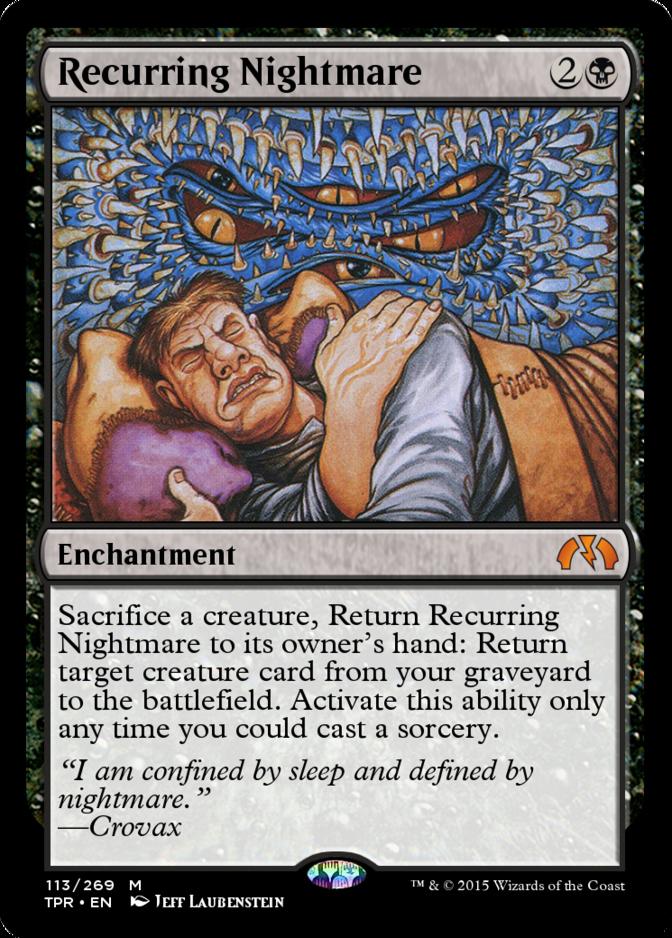
German scientists have identified the causes of the frequent occurrence of nightmares in some people, which sometimes take a lot of physical and mental strength.
The diagnosis of nightmares is characterized by frequent waking up, usually in REM (rapid eye movement), accompanied by feelings of fear, as well as other emotions such as anger, disgust, grief, etc.
nightmares are occasionally experienced by a considerable percentage of the population, this diagnosis is made only in cases where the ailment causes prolonged suffering.
The third edition of the International Classification of Sleep Disorders describes several possible ways in which nightmares affect a person's daily life. These are unpleasant memories, “flashbacks” that roll during working hours, the fear of falling asleep for fear of having a nightmare, mood disturbances.
To understand the nature of nightmares, scientists led by Michael Schroedl from the Central Institute of Mental Health (Germany) drew attention to a number of related factors.
"The aim of this study was to determine the contribution of socio-demographic parameters, the frequency of nightmares and neuroses on the global harm from nightmares," write the authors of the paper, published in the journal Sleep Science .
In a study of 2,492 men and women aged 17 to 93 years old were asked to complete a special questionnaire to assess the suffering that nightmares cause, as well as the frequency of their occurrence in adulthood and childhood. At the same time, for nightmares in the questionnaire, the following definition was given: “Dreams with strongly negative emotions that lead to awakening. The sleep plot can be restored quickly after waking up."
With the help of another questionnaire, the severity of five personality traits was simultaneously revealed - neuroticism, goodwill, extraversion, openness to new experience, consciousness (conscientiousness).
An analysis of the results showed that about 9% of respondents have nightmares about once a week, and 18% experienced them with such frequency in childhood. However, more than a quarter (27%) of those who suffer from nightmares reported that they see recurring nightmares, the plot of which is associated with events from real life.
However, more than a quarter (27%) of those who suffer from nightmares reported that they see recurring nightmares, the plot of which is associated with events from real life.
The trait neuroticism was found to be most associated with both high frequency of nightmares and frequency of recurring nightmares, while openness to new experiences and conscientiousness showed the least correlation.
Neuroticism is a personality trait characterized by emotional instability, anxiety, low self-esteem and high guilt, sometimes autonomic disorders. Neuroticism is a tendency to negative experiences, to fall into inadequate situations and the lack of an adaptive character. The three main empirically derived components of neuroticism are irritability, insecurity, and emotionality. Neuroticism is the strongest predictor of the development of all common mental disorders.
On average, women suffer from nightmares more than men, and scientists have found that the frequency of nightmares increases with age. Scientists have offered a possible explanation for this phenomenon, citing previous studies that have shown that older people who made the Second World War more often have dreams about military subjects.
Scientists have offered a possible explanation for this phenomenon, citing previous studies that have shown that older people who made the Second World War more often have dreams about military subjects.
“Overall, the results of the present study clearly show that suffering from nightmares is associated not only with their frequency, but also with other factors, such as neuroticism, nightmare repetition, age and gender,” the scientists write in their study. .
In the mode of self-isolation, in which the inhabitants of many countries are due to the coronavirus pandemic, people are more likely to have nightmares, scientists observe.
People often have vivid, strange and often scary dreams, in which there is an experience for the life of loved ones. In dreams, people often experience anxiety when they leave their homes and find themselves on deserted streets, closed shops, meeting with potentially infected people.
“In my dream, I called an Uber and a hearse came instead,” Sarah Shashner tweeted with the hashtag #pandemicdreams, with which people from different countries share unusual dreams.




